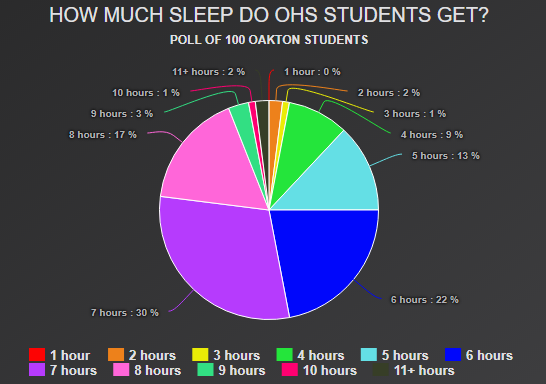Are you sleeping enough?
Sleep is more important than you might think

24 hours in a day never seem like enough time to get everything done. With school, homework, and extracurricular activities, it is easy to seemingly run out of time – you have to learn how to prioritize daily activities to make time for the most important things. Sleep might be at the end of your to-do list, but you should rethink how much time you spend awake so you can spend more time sleeping.
People often tend to prioritize activities that seem more important than sleep. However, increasing the amount of sleep you get at night may help you improve in activities when you are awake. You should reconsider getting less sleep to play sports because obtaining a good amount of sleep will help you athletically. There are many other benefits to sleeping such as improving your memory, improving your attention, decreasing stress, and increasing creativity.
We spend a third of our lives asleep and that is for a good reason. When you sleep your body performs important processes like healing cells and recharging systems for the next day. Also, your immune system needs sleep to continue thriving. When you don’t get enough sleep, your body has to work a lot harder when you are awake.
Think about it – if we didn’t need sleep, evolution would have gotten rid of it by now. The amount of sleep you receive has a significant impact on overall health. Losing sleep will cause you to lose your effective decision making skills and sleep deprivation can lead to weight gain. Also, repeated sleep loss puts a major strain on the nervous system. Some other long term effects of poor sleep habits are heart issues, increased risk of strokes, increased risk for type two diabetes, and depression.
Not only is robbing yourself of a good night’s sleep unhealthy, it can also be dangerous to yourself and others. Driving tired, in some cases, can be just as dangerous as drunk driving. 100,000 car accidents are caused each year in the United States because of drivers falling asleep at the wheel and a majority of those accidents involved teens. Also, being tired causes impaired judgement and in extreme cases it can cause hallucinations.
So how much sleep should you really be getting? The amount of sleep each individual needs to strive depends on age, genetics, medical conditions, and the environment that you sleep in. The Central Disease Control(CDC) recommends that teens(age 13-18) receive 8-10 hours of sleep per night.
Based on a poll of 100 students conducted at Oakton High School, only about 23% of students are receiving the amount of sleep they need. The majority of the students say they get about seven hours of sleep each night, which falls just under the recommended amount. But, 25% of students receive five or less hours of sleep each night.
So are you in the 77% of students who do not receive enough sleep at Oakton? If so, you should probably consider adjusting your schedule to make time for something much more important than you would think, sleep. At least, now you have an excuse to hit snooze.
Hey, I'm Payton! This is my fourth and final year with the Oakton Outlook; I'm super excited to be an Editor-In-Chief this year. I love to write feature...



